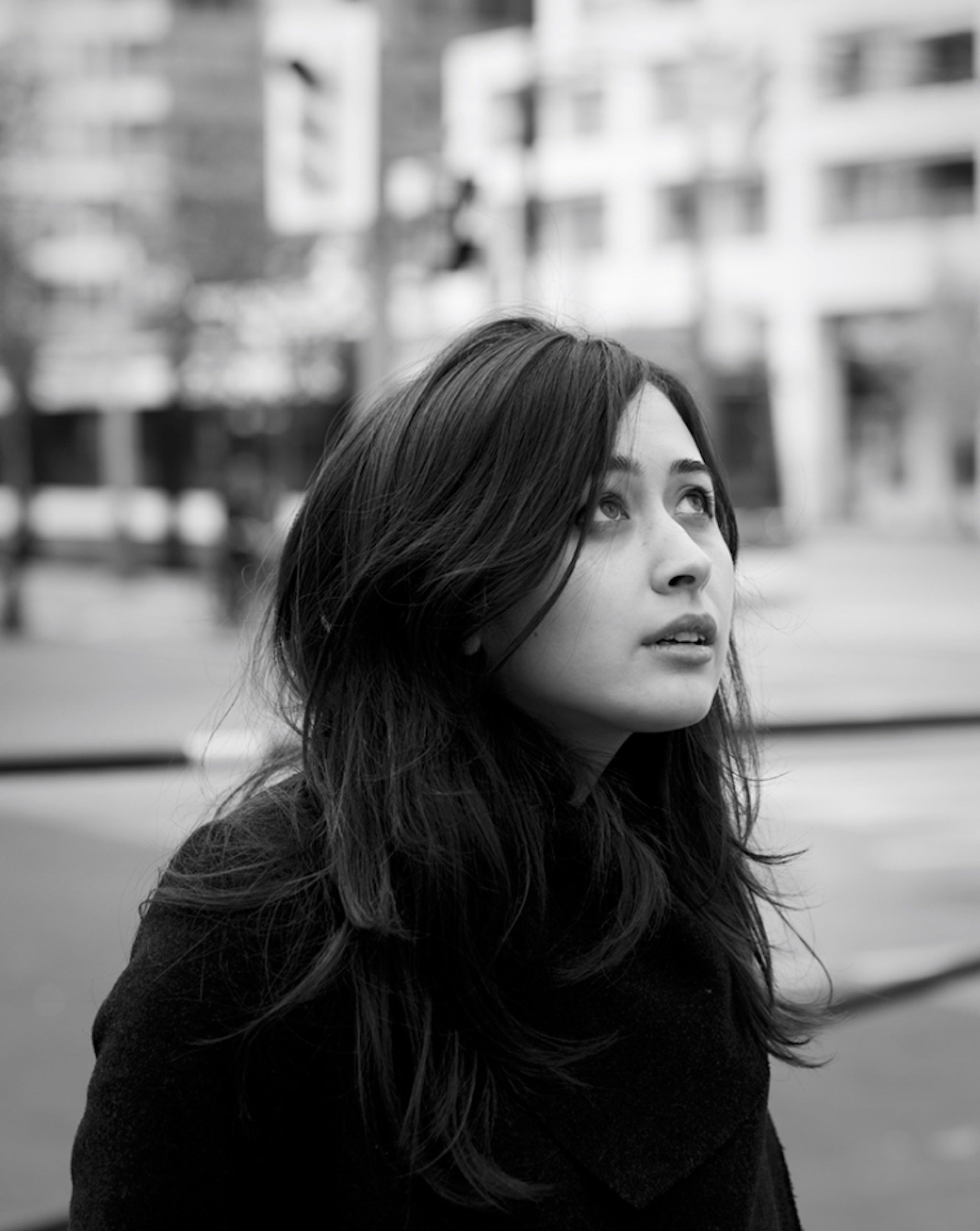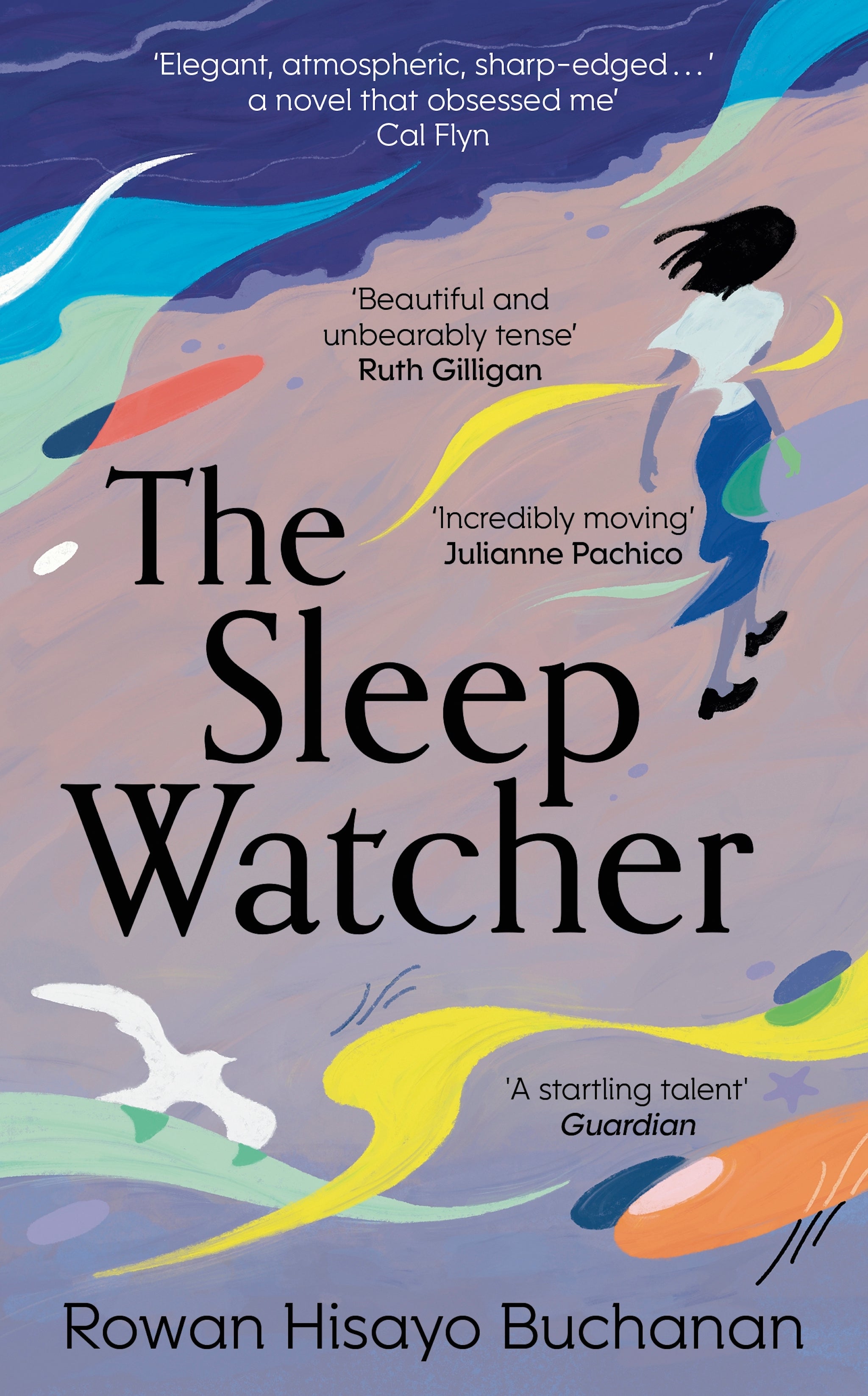
Rowan Hisayo Buchanan is preoccupied with questions. They swirl around the Betty Trask award-winning author’s mind for months, until one lodges itself in her frontal lobe and takes root. From there, it becomes a book. “What would it take for a mother to leave their child?” asked Harmless Like You, her acclaimed debut novel, which sparked a fierce bidding war among publishers in 2016.
“What would it take to stay with someone who wants to leave not only you, but life altogether?” asked Starling Days, her second. Seven years later, now on her third, she attempts to answer another: What if the person you love is a danger to others? “How do you wrap your head around that?” broaches Buchanan, over a mug of matcha at a Japanese tearoom in London. Clearly, she’s still chewing it over. “How do you choose your loyalties?”
In Buchanan’s third novel – a lyrical, bracing read, wearing the influences of Kazuo Ishiguro, Ruth Ozeki and Virginia Woolf light as a perfume – teenage Katherine cannot sleep. When she tries, she wakes up as a ghost. Without anyone able to see or hear her, Katherine can only watch and bear witness to her father’s too-tight grip on her mother’s wrist; his steely whisper in her ear; both of his hands clasped around her neck in a dangerous (could it be passionate?) embrace. But her father is kind, Katherine reasons. He strums the guitar while she sits on his lap. She loves him – probably more, if she’s being honest, than she loves her mother. So, what should Katherine do? What would Buchanan do?
“Often, the questions I have are problems I’m working through that have happened in my life or the life of someone close to me,” says Buchanan, whose deeply sensory, often nostalgic writing has made it on to critics’ lists at The New York Times and NPR.
“I know several people who have been on the receiving end of violence. In some cases, it was very dangerous and physical violence, but in other cases, it was violence that wasn’t an immediate risk to life and so could be dismissed – even by the person receiving it.” It’s the latter kind that concerns The Sleep Watcher: a simmering violence that, if you squint hard enough, you could pretend isn’t even there.
Later, Buchanan tells me she has “once or twice been the less physically strong person in adjacent situations”. She stresses, though, that hers was a “very, very different” experience to the one in her novel. Buchanan has also never had an out-of-body experience. “I used to have terrible dreams, though,” she says. “I was so afraid, I would avoid sleep for as long as possible.”
Buchanan has parsed elements of her life in her fiction before. The effect is one of closeness; her writing style holds you near. Sometimes it feels like a cool hand against a fevered brow – other times, like a snake closing in around your neck. Her 2019 book Starling Day opens with a woman willing herself to jump off the George Washington Bridge moments before a police officer stops her. It’s a more extreme version of something that Buchanan experienced as a teenager.
“I wasn’t going to jump off,” she makes clear. “But I had been very seriously depressed, and I was just walking. Then a police car stopped and demanded I get in. One of my best friends had to pick me up and sign documents swearing to take responsibility for me. I was interested in the idea of taking responsibility for a person, and being literally made to say it. It reminded me of the things we say in and around marriage. It’s the darker echo of those vows, in a way.”
Marriage, adolescence, the family unit; this is the world of Buchanan’s books. “I think the pressure and drama of family are as dramatic as throwing a ring into a volcano,” she says, adding that she is a big JRR Tolkien fan. “But, often when women write about it, it’s spoken about as domestic fiction or family fiction, but then when men write it, it’s about the human condition. And I happen to think that domestic fiction is the human condition.”
Buchanan is mixed-race; the daughter of a Japanese-Chinese American mother and white British father. Her accent, which swings like a pendulum across the Atlantic and back again, speaks to a peripatetic upbringing. She grew up in London but stayed in the US for a long while after studying at Columbia University, where she double-majored in economics and creative writing. Buchanan’s protagonists, while not always sharing an exact biological makeup, look like her. Some people take this to mean they are her. “I think it’s something that mixed-race writers experience more, and something that women, in general, experience more.”
Buchanan has mixed feelings about it. She recalls appearing on a panel with her friend and fellow author Sharlene Teo (Ponti, 2018), who said “something along the lines of ‘women get asked this because people think they have no imagination’, and there’s definitely an aspect of that, and I think she’s right to be cross – but equally I get it.” As a teenager, Buchanan says, she searched “desperately” for mixed-race writers that she could identify with. “It made such a difference to how much I felt I belonged in this world, and so I don’t want to say ‘ignore me as an author and pretend I’m under this veil’ because I can understand the desire to feel connected to the author behind the work.”
For her part, Buchanan is more concerned with writers being identified with the moral choices of their characters. “I like writing about difficult choices and wrong choices, choices that some would say make a protagonist an ‘unlikeable protagonist’. That’s quite a sad state of the world if you don’t like people who make mistakes,” she says. “I worry this pressure could push a person to the place of having to write much more one-dimensional characters.”

Buchanan’s characters used to fit a very different mould: white and male. Partly because that was what she was reading a lot of as a teenager (“There were many female writers around that time so that was probably just a quirk”; she particularly loved – and still does – Ian McEwan) but mostly because she didn’t want to have to explain her characters. “White male” seemed to require no further explanation. “I desperately wanted the freedom of just being able to write a default person, and in my head that was white guys.” She explains, “If you were writing a woman, people would want to know her age, how attractive she was, all these details I resented having to give because I thought ‘well, that’s not what this is about’. But now I see why they were asking, because those details would affect her experience of being in the world.”
I found it frustrating that the default person was a white guy – but that doesn’t mean I think all white guys have a simple life without anything worth thinking about
As her reading habits broadened, so too did the carriage of characters she thought to take on. “I wanted to write about mixed-race people, and I wanted to write about them in the way that I experience life myself, which is that sometimes, yes, race is incredibly important and affects how I interact with people and, other times, it’s the last thing on my mind. I’m thinking about love or toast,” she says. “To have those two things exist within fiction felt very important to me.” And so race as a subject exists across Buchanan’s books in varying degrees, but never heavy-handedly. It is relatively absent as a theme in The Sleep Watcher’s fraught home setting, but more palpable in the Sixties New York landscape navigated by her Japanese protagonist in Harmless Like You.

Admittedly, it’s easier for Buchanan to slip into the mind of someone like her. “There are certain men and women I would struggle to write; to work my way into their head and empathise with them, but that isn’t to say they aren’t worth empathy.” One day, maybe she will return to her white male characters. “At some point, quite possibly,” she says. “I found it frustrating that the only person who was a default person was a white guy and that those stories were unfairly prioritised – but that doesn’t mean I think all white guys have a simple life without anything worth thinking about.” She took care, for example, to flesh out the father of The Sleep Watcher with as much care as she affords Katherine. “This isn’t a book about how men are doomed to be bad, or that all men are dangerous.”
Buchanan is a new mum. She gave birth to her first child 11 weeks ago. Motherhood has often found its way into her writing. In the past, this has been done with an emphasis on the child as opposed to the parent but a narrative shift is likely imminent. “I’ve always tried to see it from both sides, but I suppose now I’m living it from both sides,” she smiles. “I’m sure as I think about my responsibilities to this new life, I’ll come up with lots of difficult questions.” And with them, lots of books.
‘The Sleep Watcher’ is out via Hachette UK on 20 April







